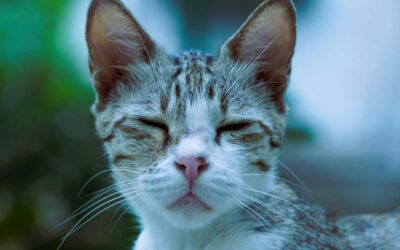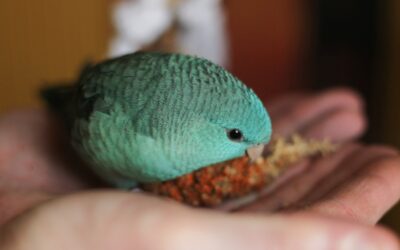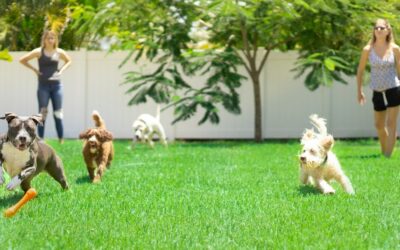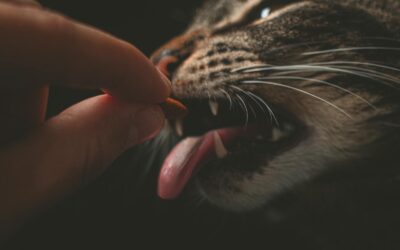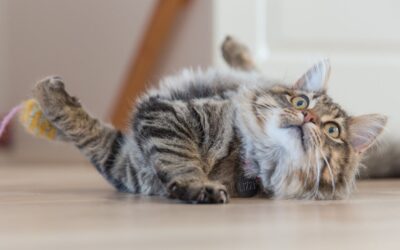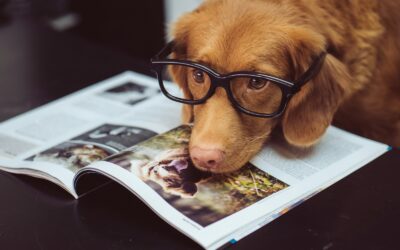Can dogs eat cat food?
Picture this: You’ve just set down your cat’s dinner, and before you know it, your dog swoops in and starts eating it. It may seem harmless, but is it really okay for dogs to eat cat food? If you’re a pet owner who’s found themselves in this tough spot, you’re not alone.
This blog will explore what every dog owner needs to know about dogs eating cat food. We’ll discuss the differences between cat and dog food, potential health risks, and how to prevent your dog from turning your cat’s bowl into their own personal buffet. Read on to learn why feeding cat food to your dog regularly may not be a good idea and how to keep both pets healthy and happy.

Why Is Cat Food Built Differently?
To understand why cat food isn’t suitable for dogs, you first need to know how cats and dogs differ in their nutritional needs.
Cats Are Obligate Carnivores
Cats are obligate carnivores, which means their diets must primarily consist of meat-based protein. Cat food is carefully formulated to meet this need. It includes higher amounts of protein and fat, as well as essential nutrients like taurine and arachidonic acid. Cats cannot produce these nutrients on their own and must get them through their food.
Dogs Are Omnivores
Unlike cats, dogs are omnivores, meaning they thrive on a more varied diet that includes not only meat but also vegetables, grains, and fruits. This allows dog food to have a balanced composition of carbohydrates, proteins, and fats to meet a dog’s nutritional requirements.
Carnivores vs. Omnivores: Understanding the Differences
It’s important to recognize that dogs and cats have distinct dietary needs due to their biological classification as carnivores and omnivores, respectively. Understanding these differences can help us provide the right nutrition for our pets.
Carnivores (Dogs): Dogs are classified as carnivores, although they do possess some omnivorous characteristics. Their anatomy and digestive system are adapted to primarily consume meat. Dogs require a diet rich in animal protein to meet their nutritional needs. While they can derive some nutrients from plant-based sources, their bodies are optimized for digesting and utilizing animal-based proteins and fats.
Omnivores (Cats): Cats, on the other hand, are classified as obligate carnivores. Their bodies require a diet that consists mainly of animal-based protein to maintain optimal health. Unlike dogs, cats have specific dietary requirements and lack the necessary enzymes to efficiently digest and utilize plant-based nutrients. They have a higher need for dietary sources of essential amino acids, such as taurine and arachidonic acid, which are found primarily in animal tissues.
Understanding these distinctions is crucial when considering the nutritional needs of our pets. It reinforces the importance of providing appropriate diets that cater to their specific biology to ensure their overall health and well-being.

Risks of Feeding Cat Food To Your Dog
Is cat food bad?
It’s easy to see why cat food might tempt your dog—it’s rich, meaty, and smells delicious. However, allowing your dog to eat cat food can lead to various health issues, especially if it happens on a regular basis and is fed too much cat food.
Gastrointestinal Upset
Cat food’s higher protein and fat levels can be hard for a dog to digest. Eating cat food, even occasionally, may lead to vomiting, diarrhea, or general digestive upset.
Weight Gain and Pancreatic Problems
Feeding your dog cat food regularly can result in unhealthy weight gain. Since cat food has more calories, fat, and protein, it can lead to overfeeding. Consuming too much fat can also increase the risk of developing pancreatitis, a painful inflammatory condition requiring immediate veterinary care.
Lack of a Balanced Diet
Dogs need essential nutrients found in their own food to maintain good health. Eating only cat food can lead to nutritional deficiencies over time, as it lacks the proper mix of vitamins, minerals, and carbohydrates found in dog food.
Behavior Problems Around Feeding
If your dog develops a habit of eating cat food, it can lead to food theft from your cat’s bowl, disrupting harmony in a multi-pet household.
Serious Health Issues
Letting your dog eat cat food long-term has been linked to gastrointestinal issues, weight gain, and even chronic issues like diabetes or liver disease in dogs.

How to Stop Your Dog From Eating Cat Food
Dogs are naturally curious eaters, so you’ll need to enforce strategies to keep them away from the cat’s bowl. Here are some tips to help you prevent this behavior.
Feed Pets in Separate Rooms
One way to manage feeding time is to separate your pets. Place the cat’s bowl in a room that your dog can’t access, such as a laundry room or bathroom. This ensures your dog doesn’t get a chance to swipe their food.
Use Elevated Feeding Stations
An elevated feeding station or high shelf can put your cat’s food out of your dog’s reach. This works particularly well for small or medium-sized dogs unable to jump up to access the food.
Train Your Dog on “Leave It”
Training your dog to follow the “leave it” command can help prevent them from eating cat food. Positive reinforcement and consistent training sessions can establish clear boundaries between their food and the cat’s dinner.
Store Cat Food Securely
Keep the bag or container of cat food in a cabinet or location your dog cannot access. This will minimize the temptation for your dog to sneak a snack.
Stick to a Feeding Schedule
Establish a consistent feeding schedule for both your dog and cat. When both animals have designated mealtimes, they’re less likely to scavenge the other’s food.

Top Alternatives to Cat Food for Dogs
While dogs can consume a variety of foods, it’s important to note that cat food is specifically formulated to meet the nutritional needs of cats and may not provide the necessary nutrients for dogs. However, if you’re in a situation where your dog accidentally consumes cat food or if you’re looking for alternative options, here are some top alternatives to cat food for dogs:
- Stella & Chewy’s Freeze-Dried Raw Dinner Patties: These freeze-dried raw patties provide a balanced and protein-rich meal for dogs, incorporating high-quality animal proteins and other essential nutrients.
- Blue Buffalo Wilderness High Protein Dry Dog Food: This grain-free dog food is formulated with real meat as the first ingredient and is rich in protein, helping to support your dog’s muscle development and overall health and taste similar to dry cat food.
- Wellness CORE Grain-Free Dry Dog Food: This grain-free formula is packed with high-quality animal protein sources and essential vitamins and minerals to promote your dog’s overall well-being.
- Merrick Grain-Free Dry Dog Food: With a wide range of protein-rich options, Merrick’s grain-free dry dog food is formulated to support your dog’s dietary needs and provide a balanced meal.
- Acana Heritage Meats Dry Dog Food: This biologically appropriate dog food is made with a variety of fresh, quality animal ingredients to replicate a natural diet, providing optimal nutrition for your dog.
- Royal Canin Veterinary Diet Hydrolyzed Protein Dog Food: If your dog has specific dietary requirements or sensitivities, this hydrolyzed protein dog food from Royal Canin can be a suitable alternative, formulated to support their nutritional needs.
Remember, it’s always best to consult with your veterinarian before making any significant changes to your dog’s diet.
Dog-Friendly Supplements
If you want to enhance your dog’s meals, talk to your veterinarian about safe supplements or toppers that align with your dog’s nutritional needs making healthy adult dogs.
Special Treats
Choose vet-approved treats that add excitement to meals without compromising their health. These are specially made to cater to your dog’s preferences while ensuring balanced nutrition and can be used in place of wet cat food for your dog.

Signs Your Dog Has Been Eating Cat Food
While dogs and cats may have similar dietary needs in terms of protein and nutrients, there are distinct differences in their nutritional requirements. If your dog has been sneaking into the cat’s food bowl, here are some signs to watch out for:
- Gastrointestinal Issues: Eating cat food can cause digestive distress in dogs, leading to symptoms like diarrhea, vomiting, or upset stomach.
- Weight Gain or Loss: Cat food is often higher in calories and fat content compared to dog food. If your dog has been indulging in cat food, you may notice unexpected weight gain or loss.
- Unbalanced Nutrition: Cat food is formulated to meet the specific nutritional needs of cats, particularly regarding taurine and arachidonic acid. Continuous consumption of cat food by dogs may result in an imbalance of essential nutrients.
- Increased Thirst and Urination: Some cat foods have higher salt content, which can lead to dehydration and increased thirst and urination in dogs when consumed regularly.
- Changes in Coat and Skin: Inadequate nutrition from cat food can impact your dog’s coat and skin health. Look out for signs of dull or rough fur, excessive shedding, or skin irritations.
If you suspect that your dog has been eating cat food, it’s important to address the issue promptly. Keep cat food out of your dog’s reach, ensure they have access to their appropriate dog food, and consult with your veterinarian for guidance on their dietary needs.
Kate’s K9 Pet Care provides multiple services for your dogs, cats, and small animals! contact us today!

Promoting Healthy Lives for Both Pets | Can Dogs Eat Cat Food?
While letting your dog nibble on cat kibble occasionally isn’t catastrophic, it’s not a habit you want to encourage. Your dog’s nutritional requirements differ significantly from your cat’s, and feeding cat food regularly can lead to digestive upset, weight gain, and potential health complications.
To ensure both your pets live healthy lives, opt for food designed specifically to meet their unique dietary needs. Keep their feeding areas separate and invest in training and proper storage to make mealtime a win-win for both your cat and dog.
By taking these steps, you’ll be supporting your furry friends in thriving together under one roof.


